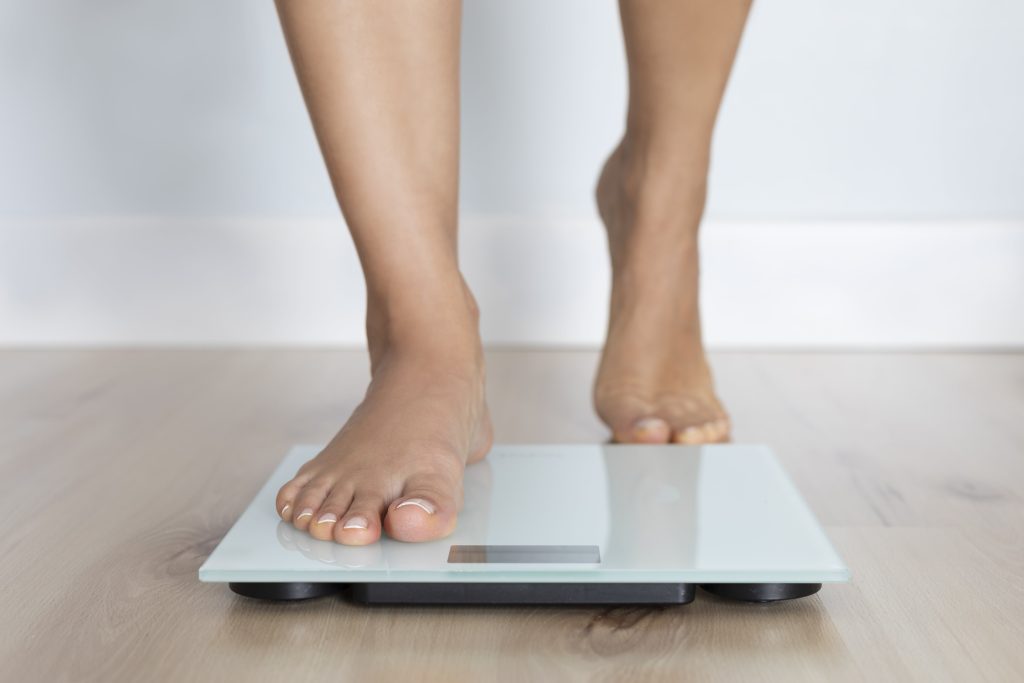
6 Signs Probiotics Are Working or Not

If you have walked into any grocery or health food store in the past few years, you have likely been bombarded with probiotic products and foods. From kombucha to supplements, probiotics have exploded in popularity. Many people are now trying them, to address digestive complaints or even for things like low energy or brain fog.
If you have hopped on board with the probiotic craze, you might wonder how to understand if it is working, and worthy of your investment. After all, probiotics are not medications that target specific symptoms, so their effects could be very subtle and individual. In fact, it’s totally possible to feel absolutely nothing after introducing probiotics, especially if you’re quite healthy to begin with. This is either because the products lack the necessary potency or the right strains for you. However, noticing nothing doesn’t mean that you’re not getting any benefits, either. This is why many functional medicine doctors often use functional tests to check more objectively for gut health status.

In this article, we break down what to look for to ensure that you are getting the benefits from your probiotic, and how to identify when it is not.
If you are curious about how long it typically takes for probiotics to work, we have an entire article dedicated to this topic, which you can access here. It’s a good idea to give each probiotic product at least twice that amount of time before deciding it’s not working for you.
Probiotics Effects Are Individual
Before we dive in, it is important to understand that many things can impact your response to any specific probiotic product. We all have different starting points that can affect your gut flora composition and thus probiotic responses, including:
- Age
- Diet
- History of antibiotic use
- Immune system pattern
- Genetics
- Current supplements or medications
These factors can drastically change your response to a specific probiotic strain. Each person is unique, so responses can vary widely. Plus, products themselves can differ drastically. Some might be more potent, have different strains, or even be more shelf-stable than others.
Keeping this in mind, let’s look at what to watch out for to ensure you are getting the most out of your probiotic supplement routine.
6 Signs Your Probiotics Are Working
When taking probiotics, you might notice several signs indicating that they are working effectively. It is important to give your body some time to adjust – benefits of probiotics can take some time. But, you should notice some changes once they are given some time to work, and here are some things to look out for:
1) Better Regularity

One of the most common uses for probiotics is to support regular bowel movements. By producing beneficial postbiotics and normalizing the gut flora, the probiotics can help you be more regular. Some strains might also help improve movement through the digestive tract (which we call gut motility), making it potentially useful if you tend to have constipation. Some of the most studied strains for these purposes are:
- Bifidobacterium lactis: Known to help improve bowel movement frequency and consistency
- Lactobacillus rhamnosus: Seems to help stool move through the digestive tract and reduce constipation
- Lactobacillus acidophilus: Studies find it can help balance gut microbiota and improve stool consistency.
If you are using a probiotic to help with bowel regularity, monitoring how often you use the bathroom can be a helpful tool to understand if it is working. And, although it might be gross, observing what your stool looks like can also give you some clues. For example, if you normally have hard, difficult-to-pass stools that look like small clumps, but after taking the probiotic they are longer and easier to pass (closer to a 3 - 4 on the Bristol Stool Chart), it might be a good hint that they are working.
2) Smoother Digestion
Smoother digestion can be a great clue that probiotics are effectively working for your system. When the microorganisms in your digestive tract are in balance, they help with digestion by:
- Producing digestive enzymes to break down food
- Absorb nutrients by supporting the health of your gut barriers
- Fend off suboptimal bacteria, either by occupying space or producing substances that inhibit these bacteria
- Normalizing gut immune functions

A good indicator that probiotics are doing their job is fewer digestive issues – think bloating, gas, and digestive irregularity. These symptoms can relate to imbalances in gut bacteria, which can disrupt normal digestive processes. When this balance is restored, which can happen with taking the right probiotic, you might notice some improvements in these symptoms.
Having a more diverse population of bacteria in your digestive tract might help your body better handle breaking down foods which can be challenging for some of us. Most commonly, these tend to be lactose and fiber. By improving the breakdown and absorption of these substances, probiotics contribute to a more harmonious digestive experience.
3) Less Post-meal Discomfort and Bloating
Post-meal heaviness and discomfort could come from suboptimal bacteria fermenting your food the wrong way, creating gas in your stomach. Probiotics can help restore this balance, reducing gas and making your stomach flatter and more comfortable.
One study in 77 subjects found that the strain Bifidobacterium infantis helped relieve abdominal discomfort, bloating, and constipation compared to placebo.
In another, 362 people received a placebo or varying doses of Bifidobacterium infantis 35624 for 4 weeks. Results showed that the 1 x 10^8 CFU dose was significantly better than the placebo and other doses for reducing abdominal discomfort, bloating, and other occasional digestive symptoms. This dose also improved overall symptom relief by over 20%.
4) Better Mood and Brain Function

Probiotics can impact mood and brain health through their impacts on the gut-brain-microbiota axis.
In one study, 63 healthy older adults received probiotics containing specific strains of Bifidobacterium for 12 weeks. Researchers looked at the composition of their microbiota, and measured levels of an important protein for brain health called BDNF. After the 12 weeks, the group given probiotics had healthier gut flora, and showed improvements in mental flexibility and stress compared to the placebo group. They also had higher BDNF.
If you are using probiotics to help support mood and cognition, there are some things to watch for that can hint they are working. Here are some of the big ones:
Better cognitive function: you might notice improvements in memory, mental flexibility, and overall thinking in your daily tasks.
Better mood: If probiotics are working for you, you might notice a better mood, lower stress, and an overall sense of well-being. Using something like a daily journal to document your feelings might be a helpful tool.
More resilience: if you notice you are more capable of handling daily stressors and curveballs after starting a probiotic, that might be a clue that it is working well for you.
5) Changes in Hunger, Cravings, and Weight
You might think that signals from both the brain and the body impact hunger cues and cravings. However, recently, researchers found that your gut flora might also make you crave the foods the microbes want to eat.
Probiotics might impact hunger and food cravings in several ways, such as:
- Regulate fat absorption and excretion
- Impact hormones that regulate hunger like GLP-1 and GLP-2
- Support gut health to balance immune response and metabolism
- Support short-chain fatty acid production, which might help gut health
In one study, conducted on 236 people, individuals were given a specific probiotic strain called Hafnia alvei for 12 weeks. All people were also told to consume 20% fewer calories than typical and keep up with their usual physical activity. Those who got the probiotic had significantly more weight loss and reported feeling fuller after the study was finished.
If you have fewer cravings for unhealthy foods, more controlled hunger levels, or more satisfaction after meals, these can be good signs that your probiotic is helping.

6) Some Changes in Blood Markers
If you regularly check your blood markers, any changes that happen after starting a probiotic can be another helpful clue that they are working for you. We tend to think of probiotics as only impacting the digestive tract, but when effective, they can have positive impacts on other areas of your health too!
Improvements in cholesterol levels is one of the better-studied impacts probiotics might have. Studies find that probiotics can help lower LDL cholesterol and increase HDL cholesterol, even though you already have normal levels. This happens because probiotics break down bile in the gut, which is made of cholesterol. By breaking down bile, probiotics help reduce the amount of cholesterol that is reabsorbed into the bloodstream.
Blood sugar levels can also be impacted. Some studies show certain probiotics can help support healthy insulin sensitivity and might help your body manage blood sugar effectively. The sweet spot seems to be using them for more than 8 weeks.
The new probiotic strain Akkermansia muciniphila also has a lot of clinical trials demonstrating its benefits for blood sugar and metabolism.
Inflammation markers (already within normal range) can also sometimes decrease when your probiotic is working well, so any changes in these markers can be a good sign.
Signs Your Probiotics Are Not Working for You
Now that we have broken down what you can expect if your probiotics ARE working, how can we tell when they are not?
Sometimes, your body might not be the issue – but the probiotic supplement itself. Most probiotics are sensitive to heat, light, radiation, or moisture and if it is not stored correctly they can lose their potency. It might also just be poor quality. We need the probiotics to make their way to the intestine, where they can then exert their effects. Your stomach acid is also made to kill any microbes that you ingest, so it could kill most of the probiotics unless you have an acid-resistant preparation or strain.
1) You Feel Nothing
If you don't notice any changes, it doesn't always mean the probiotics aren't working. Sometimes, the effects are subtle or take longer to show. However, if after twice the duration for the intended effects, you still don't feel any different, they might not be the right fit for you.
Monitoring your response to a specific probiotic often ties back to why you were taking it in the first place. If you were taking the product to help address a specific issue (like bloating, for instance), and you have not noticed any meaningful change after 8 weeks, this might be a hint that it isn’t doing its job.
2) No Improvement in Digestion
Probiotics are supposed to help with digestion issues like bloating, gas, or constipation. If you don’t see any improvement in these areas after 4 weeks, it could mean the probiotics aren't effective for you.

3) Bad Reactions to the Probiotics
Sometimes, probiotics can cause negative side effects. If you experience headaches, diarrhea, constipation, brain fog, or increased fatigue that doesn't go away after a week, these are signs that that specific probiotic product might be causing more harm than good. In most cases, you can contact the vendor to return the product and get a refund. This is why BiOptimizers have a 365-day guarantee on the first bottle for all of our products.
Some Final Tips for Taking Probiotics
So, to maximize the effects of your probiotic routine, here are some tips to ensure you find a product that works well for you:
- Choose the right strain: As we learned above, different strains show different effects depending on what you are taking them for. Choosing the correct one is important when looking to maximize the benefits.
- Proper dosing: It is also good to be mindful of the dose needed to get effects. Often, this can be expressed as CFUs, and sometimes the label will offer helpful instructions. For lactic acid bacteria like Lactobacilli and Bifidobacteria, you need at least several billion CFUs.
- Storage: While some probiotics are shelf-stable, others require refrigeration. Be sure to check the label to make sure you keep it in the correct place.
- Consistency: It can take some time to notice the impacts of probiotic supplements, so being consistent is important. And, we always want to ensure we hit our fiber goals – fiber acts as a “prebiotic”, helping to keep good bacteria alive!
When in doubt, speak to your healthcare provider, especially a naturopathic or functional medicine doctor, who can offer some insight on which specific strains might benefit you best!
References
- Zmora N, Zilberman-Schapira G, Suez J, et al. Personalized gut mucosal colonization resistance to empiric probiotics is associated with unique host and microbiome features. Cell. 2018;174(6):1388-1405.e21. doi:10.1016/j.cell.2018.08.041
- Dimidi E, Christodoulides S, Fragkos KC, Scott SM, Whelan K. The effect of probiotics on functional constipation in adults: a systematic review and meta-analysis of randomized controlled trials. Am J Clin Nutr. 2014;100(4):1075-1084. doi:10.3945/ajcn.114.089151
- Gu Y, Qin X, Zhou G, et al. Lactobacillus rhamnosus GG supernatant promotes intestinal mucin production through regulating 5-HT4R and gut microbiota. Food Funct. 2022;13(23):12144-12155. doi:10.1039/d2fo01900k
- Martoni CJ, Srivastava S, Leyer GJ. Lactobacillus acidophilus DDS-1 and Bifidobacterium lactis UABla-12 improve Abdominal Pain Severity and symptomology in irritable bowel syndrome: Randomized controlled trial. Nutrients. 2020;12(2):363. doi:10.3390/nu12020363
- Latif A, Shehzad A, Niazi S, et al. Probiotics: mechanism of action, health benefits and their application in food industries. Front Microbiol. 2023;14. doi:10.3389/fmicb.2023.1216674
- Leis R, de Castro MJ, de Lamas C, Picáns R, Couce ML. Effects of prebiotic and probiotic supplementation on lactase deficiency and lactose intolerance: A systematic review of controlled trials. Nutrients. 2020;12(5):1487. doi:10.3390/nu12051487
- Foley A, Burgell R, Barrett JS, Gibson PR. Management strategies for abdominal bloating and distension. Gastroenterology & Hepatology. 2014;10(9):561.
- O’Mahony L, McCarthy J, Kelly P, et al. Lactobacillus and bifidobacterium in irritable bowel syndrome: Symptom responses and relationship to cytokine profiles. Gastroenterology. 2005;128(3):541-551. doi:10.1053/j.gastro.2004.11.050
- Whorwell PJ, Altringer L, Morel J, et al. Efficacy of an encapsulated probiotic Bifidobacterium infantis 35624 in women with irritable bowel syndrome. Am J Gastroenterol. 2006;101(7):1581-1590. doi:10.1111/j.1572-0241.2006.00734.x
- Kim CS, Cha L, Sim M, et al. Probiotic supplementation improves cognitive function and mood with changes in gut Microbiota in community-dwelling older adults: A randomized, double-blind, placebo-controlled, multicenter trial. J Gerontol A Biol Sci Med Sci. 2021;76(1):32-40. doi:10.1093/gerona/glaa090
- Mazloom K, Siddiqi I, Covasa M. Probiotics: How effective are they in the fight against obesity? Nutrients. 2019;11(2):258. doi:10.3390/nu11020258
- Déchelotte P, Breton J, Trotin-Picolo C, et al. The probiotic strain H. alvei HA4597® improves weight loss in overweight subjects under moderate hypocaloric diet: A proof-of-concept, multicenter randomized, double-blind placebo-controlled study. Nutrients. 2021;13(6):1902. doi:10.3390/nu13061902
- Zhang Q, Wu Y, Fei X. Effect of probiotics on glucose metabolism in patients with …: A meta-analysis of randomized controlled trials. Medicina (Kaunas). 2016;52(1):28-34. doi:10.1016/j.medici.2015.11.008
- Dao MC, Everard A, Aron-Wisnewsky J, et al. Akkermansia muciniphilaand improved metabolic health during a dietary intervention in …: relationship with gut microbiome richness and ecology. Gut. 2016;65(3):426-436. doi:10.1136/gutjnl-2014-308778
- Milajerdi A, Mousavi SM, Sadeghi A, et al. The effect of probiotics on inflammatory biomarkers: a meta-analysis of randomized clinical trials. Eur J Nutr. 2020;59(2):633-649. doi:10.1007/s00394-019-01931-8
- Williams NT. Probiotics. Am J Health Syst Pharm. 2010;67(6):449-458. doi:10.2146/ajhp090168
